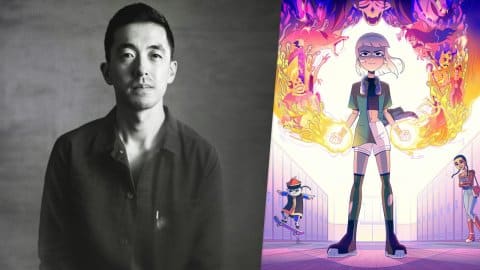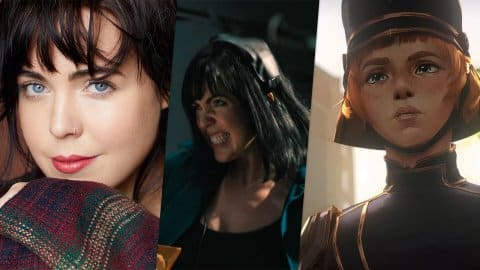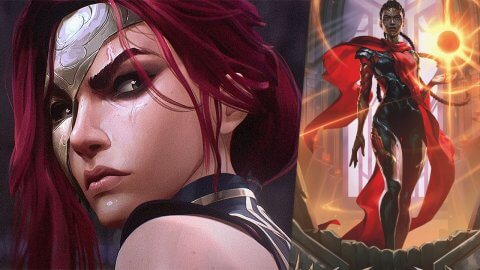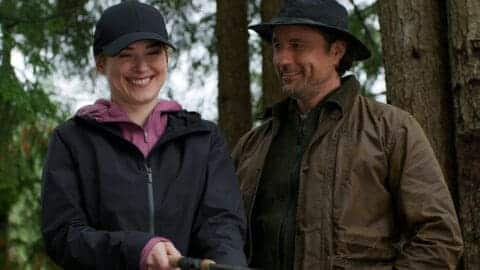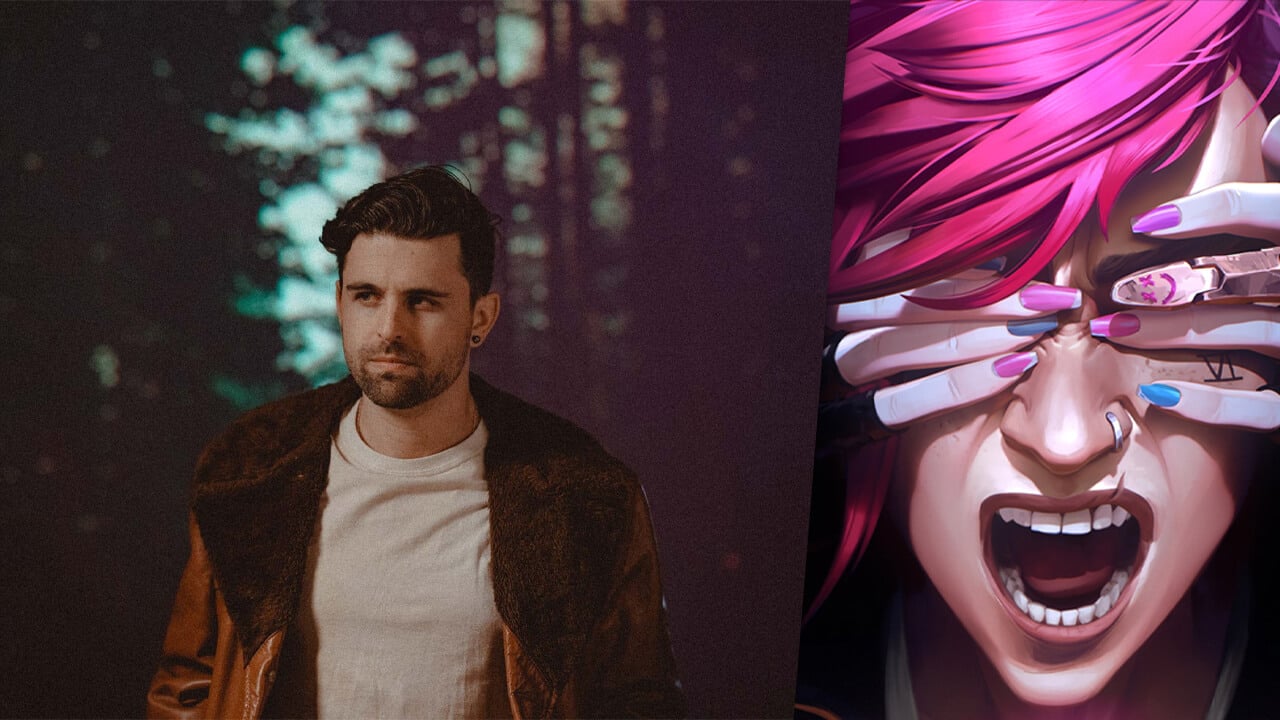
Picture: Alex ‘Mako’ Seaver
After three years of waiting, Arcane has returned for its second and final season. The jaw-dropping animation of Arcane is paired with the incredible music of Alexander Temple, Andrew Kierszenbaum, and Alex Seaver, aka Mako. We recently had the opportunity to discuss the score of Arcane season 2 with Alex Seaver, who not only helped compose the music of the series but is also the executive producer on its soundtrack.
Arcane is an animated series produced by Fortiche Productions and Riot Games, the creator of the League of Legends video game. The series acts as a prequel to the game, providing long-time fans with an incredible backstory and lore for one of the world’s most popular MOBA games.
The series took the world by storm in 2021 thanks to its jaw-dropping animation and phenomenal soundtrack. No punches were pulled in its return to Netflix, as Act 1 of the final season has already left fans desperate for more episodes.
Jacob: You first worked with Riot Games on a League of Legends short, Awaken, in 2017 and then again in 2019. Was that pre-established relationship with Riot how you became involved with Arcane?
Alex: Absolutely, yes. So I think my first music with them was years before that. They had made an EDM album called War Songs. As Mako, my artist profile, I remixed the song Piercing Light.
I don’t know what year this was, but it might have been in the 2015 range. Then, I worked on some of their Worlds anthems, including Legends Never Die. And then, somewhere across the campus, in a small building, this guy named Christian was starting to build the very beginnings of Arcane. I had no idea.
At one point, he just said, “Hey, do you want to come over to the office and check out what I’m working on?” He played bits of the pilot, showed me some images, and asked if I wanted to join Alex Temple on the music team. I was over the moon.
Your colleague, Alexander Temple, also worked on some of the music for Riot Games before Arcane. What was it like collaborating with another composer?
Alex: It was a dream. Alex is probably my favorite film composer of all time, and I’m not even saying that as hyperbole. His work is astonishingly beautiful and impactful. What he does with the orchestra, especially his work on this show. I got to hear his submissions every week.
We’d meet and play each other what we were working on. Just hearing his process and hearing his music was about as inspiring as it gets. He was so cool with me because I come from a slightly different creative slant than he does.
He was so patient with me. I was pretty nervous at first because his music is intimidatingly amazing. But he was great. As the lead composer, he’s the boss of the score and is just a great boss. He was so helpful, and he always guided us toward the winning decision and didn’t waste any time getting there. I can’t say enough good things about him. And I think the work that he’s done on the scores is pretty astounding.
What’s the process for composing the score for an animated series such as Arcane? How early do you receive storyboards and scripts? I imagine there has to be some form of inspiration from certain scenes or key moments that you know will happen.
Alex: Yeah, I mean, you nailed it. As far as I understand it, live-action television is very different. The composer comes in when everything’s picture lock is filmed. Things are mostly done at that point. In animation, especially with Arcane, we started this from day one.
We’re posting some of these initial songs right now [on Spotify]. I wrote a couple of these songs before season one was released, so it’s like we were already working on season two. I remember it was around October 2021, and season one would come out a month later. We flew to Paris and started working on some initial songs from the early storyboarding process. It’s in-depth work, so I love working with them. You get to be involved from the very beginning.
You’re all sort of in this hive mind together, planning the moves so that by the time everything evolves, we’ve all figured out what each scene needs, how to support the storytelling, how to help the animation. And I think the score side functions more traditionally, where we’d write weekly cues. We’d get them approved, get feedback, and then we’d eventually orchestrate them, then head to Berlin to record a live string orchestra.
On the song side, it was way different because there was no rubric for writing songs for animation in this way. It ended up kind of being like we were film-scoring our songs to picture. I would write a chorus that had to last this long because, on screen, you only get this much time to say something, which is not generally how songs are made for film and television.
What interested me about the music overall in Arcane is that not only do you have an orchestral score, but there’s also a lot of licensed music placed throughout.
It’s not licensed. All the music is entirely bespoke. I think that’s the thing that makes the soundtrack so interesting. And our goal is so ambitious that every single song you hear on there is entirely bespoke and written to the picture. It’s meant to exist only because of the scene that you see it in. Later, after we finish the show, we will go back and make better arrangements for Spotify and other stuff. But it’s the opposite of how most songs are placed in film and television, where it’s a finished song that an artist might not have even written for that project, and then an editor comes in and sets it in. We start looking at pictures, and I’ll work with the artists. We go, OK, we’re writing about what’s on screen. Here we go.
So, have you worked with all of the artists on the music?
Alex: Yeah, all of them! So, I executive produced the soundtrack this season, so I probably wrote maybe half of the songs on the soundtrack. Then, the other half was working with these fantastic artists, and I helped guide them through the process so that they could create something extraordinary for themselves and Arcane simultaneously. It was a very international soundtrack, so many Zoom calls and a few long flights to work with people.
Every song was a different little puzzle. I’d either be very involved, give them feedback, or not do much. I would take what they’d made and then start film-scoring it to picture. But from the first meeting, these things were all made to support the show.
One of my favorite bands you worked with on this, which I think is underrated, is Fever 333.
Yeah, I totally agree. They’re so underrated. They’re amazing.
How would you describe the score for the series?
Alex: It’s sort of like scores and songs, which is how I talk about it. So, the score that Alex Temple and I made is very high fantasy. It’s epic. It uses many Orchestral elements but also mixes in many hybrid electronics and rock elements. The song and the soundtrack of our songs were all across the board. The split of genres is pretty wild. We open with the beautiful piano ballad from Freya Ridings and immediately go into this Linkin Park, Mike Shinoda, full-on, screaming band and stuff, and everything in between. And I think that was leaning on our animation team at Fortiche and Christian, our showrunner. They would dream the stuff up. I mean, every scene we’d meet, and then they’d tell me, this is what we’re looking for. These are the kind of styles we like. I was constantly surprised. They would like to mix things up, throw curveballs, and bring in different influences for this scene. It was an enjoyable experience with them. And we did like 22 songs this season, so there were many.
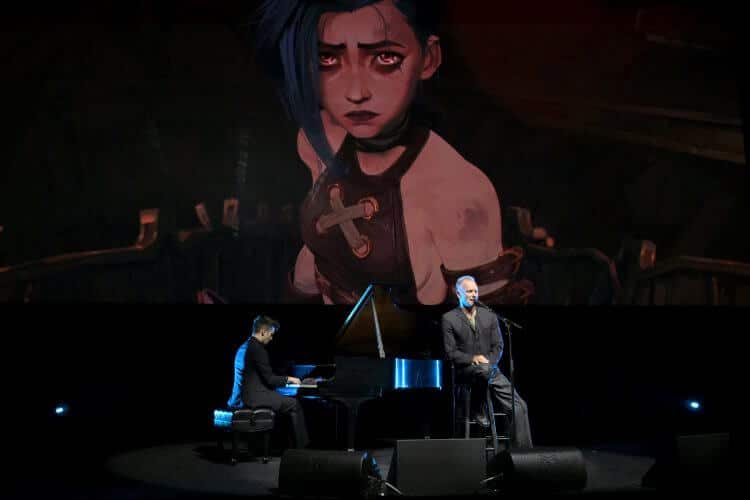
LOS ANGELES, CALIFORNIA – JUNE 06: Sting performs onstage during Netflix’s Celebrating the Music of Arcane at Raleigh Studios Hollywood on June 06, 2022 in Los Angeles, California. (Photo by Charley Gallay/Getty Images for Netflix)
I think with the artistry of Arcane, you’ve got Zaun, this dark steampunk style, and then Piltover with art nouveau and art deco, there’s such an array of different colors and cultures blended into it. So I thought the freedom to set up a playground must have helped make the score even better for you.
Alex: That’s an insightful way you put it. I love how you described it. And that was the initial season one effort. We will create two distinct worlds, this aristocratic upper crust where we borrow Baroque music and very stately classical music for Piltover. Then, in Zaun, we literally recorded ourselves banging on trash cans and metal and making them grungy and dirty to reflect the polarity of these two places.
We still have that in season two, but it’s not quite the same as the characters blending into each other now. You’re now seeing Piltover characters deep in Zaun for much of the season. You’re also seeing characters from Zaun all of a sudden in Piltover. So it’s a little bit less about two cities, and now it’s becoming more character-based in season two.
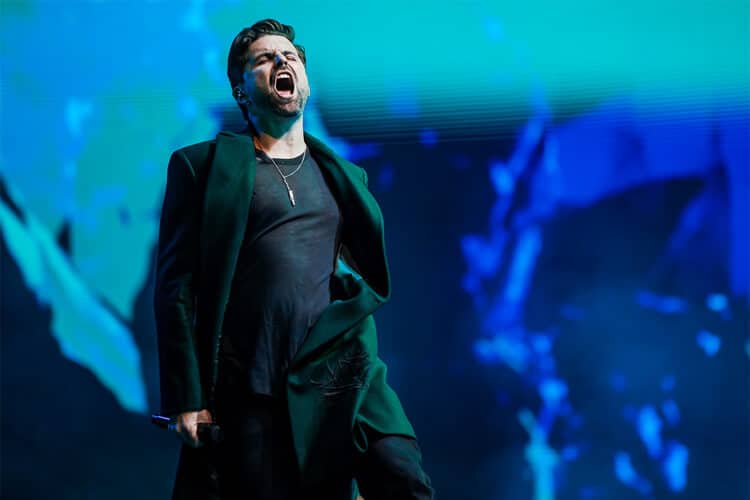
Picture: Alex Seaver aka Mako, performing at League of Legends Worlds in 2023 – Credit: Colin Young-Wolff
So, without giving away any spoilers, what can fans expect from the score in acts two and three?
Alex: Yeah, I mean, there’s some fantastic moments. It’s tough not to spoil things, but we’ve got a couple of big curveballs that we’re excited about turning things on their head. Alex Temple and I started experimenting more with diegetic music in season two, especially in the later acts. You know, the kinds of things where when you’re in a bar, or you’re in the last drop, or you’re somewhere, you hear music playing as if it’s on the radio or whatever. We had a lot of fun making that stuff very specifically and dropping in little Easter eggs and things into that. And we only did a little bit of that in season one. There are some jaw-dropping sequences to come, and Alex Temple and Andrew Kierszenbaum have some cues coming up that are like all-timers for me that I’m just really, really pumped.
There are some song moments that I’m just so excited for. We’ve got Stromae on the soundtrack, and I still can’t believe he joined us for this. Twenty One Pilots is coming up. I can’t stop gushing about all these songs that are yet to come.
As there is such a mixture of genres in the score, what was the biggest challenge in balancing the music between using an orchestra and the moments where you would use songs? The fight between Vi and Jinx springs to mind; what’s the challenge of not letting the orchestra get lost in the songs?
It was such a challenge, and it was one of the things after season one had finished. I felt we could improve our music during the fight sequences as you mentioned. The critical thing that made season two so special for me was that we worked closely with our sound design team this time, and they’re amazing.
Brad, Elliot, and PJ, they’re so good. I would work on a song you’re describing, Two Ashes and Blood with Woodkid. And Christian wanted this weird, quiet, ancient, unsettling, cinematic piece of music rather than like spunky action music.
Christian is like, “I want this to sound like it’s from a 3000-year-old people warning everybody what they’re and that they’re playing with fire.” We invented a language with our lore team and had a children’s choir chant it. It was such a profound process. Then, after all that, we have to plot this in this thrilling action sequence. The only reason it works is because I think our sound design team was down to collaborate with us and get it right.
So there I am, sitting in the theater with Elliot, and we just pushed at this thing from all angles for a whole day to make sure that the important beats where the song needs to search forward, search forward. Then, the important moments where you’re seeing impact, guns, and just things that need to wallop you in the face. The music sneaks right behind it and goes a little bit unnoticed. It’s this dance that just kept going back and forth.
It’s probably one of the sequences I’m the most proud of because it’s so hard to get orchestral music, like you’re saying, and songs to function well over action music or action scenes with the sound design. I think it’s a week after the first act’s release. The fact that that scene is being well responded to is one of the proudest things for us.
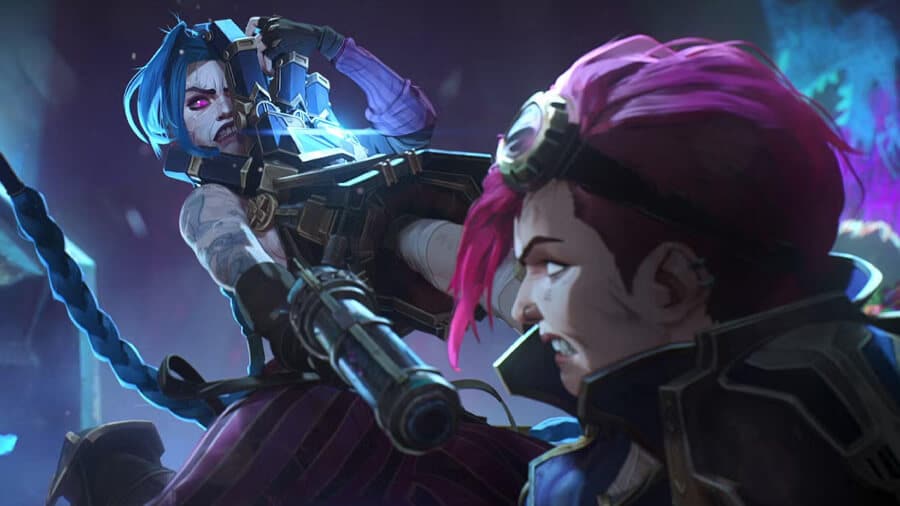
Picture: Jinx vs Vi one of the highlights of Act 1 of Arcane season 2 – Riot Games
So, what are you working on next?
So, the funny thing is, I don’t know. I worked on another show at Netflix that’ll be coming out next year. I have no idea if I’m allowed to say anything about it. So I’ll say that much. I’m doing a couple more songs with Riot Games for some of their new projects, but I don’t have anything big going on yet. I’m excited to chill for a second. I’m definitely going to like lay low until the new year, and then I’ll start sniffing around and seeing what’s next. But like anything that Teach works on and anything that Christian works on. I’m just like, if they if they call me, I’m picking up. I love this stuff.
What are your thoughts on the first act of Arcane season 2? Have you enjoyed the music of the series so far? Let us know in the comments below!

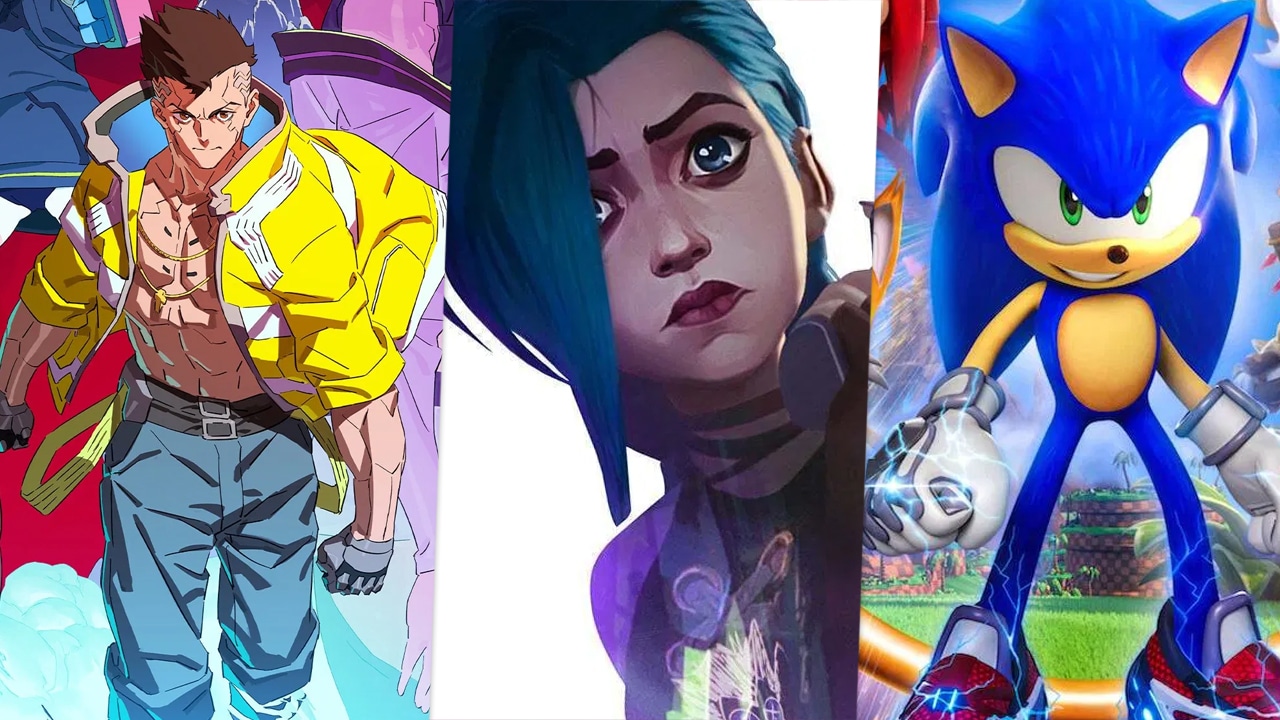
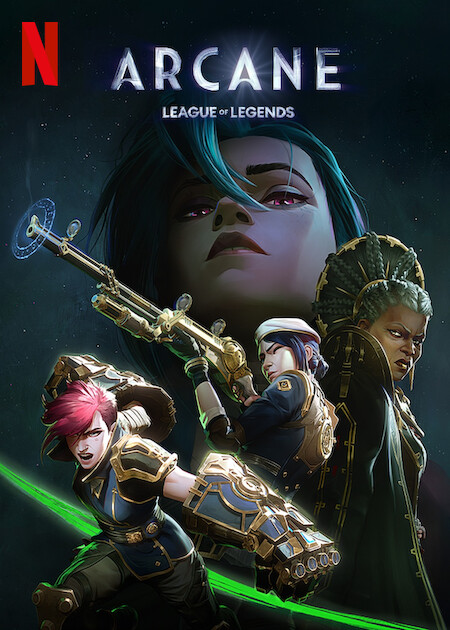 Rating: TV-14
Rating: TV-14